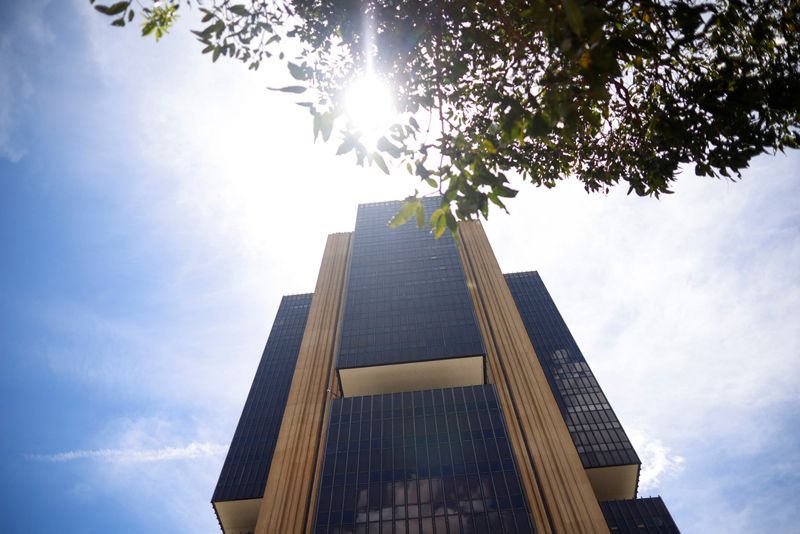BRASILIA (Reuters) – Brazil’s central bank has evolved in communication, shifting from indicating a high bar for accelerating its easing pace to now flagging 50 basis-point rate cuts in the next two meetings, said a senior representative on Wednesday.
Speaking at an online event hosted by J.P. Morgan, Diogo Guillen, the central bank director of monetary policy, said, “We think there is a positive outcome on providing this guidance.”
Guillen said the terminal rate in the easing cycle will end at a restrictive point, but the central bank refrains from specifying what that would be due to the belief that “there is more noise than signal on trying to provide a number.”
In December, policymakers flagged additional 50 basis-point reductions in each of the upcoming policy meetings in January and March.
The central bank started cutting rates in August after maintaining them at a six-year-high for almost a year to curb inflation. So far, they have reduced borrowing costs by 200 basis points, bringing the benchmark rate Selic to 11.75%.
Guillen reinforced that there is no mechanical relationship between the external scenario and the bank’s actions, as policymakers concentrate on inflation’s transmission mechanisms.
He acknowledged an “impressive” change in external prices between the last two policy meetings, supporting the observation of a less adverse but volatile external scenario.
He also pointed out again that the central bank has emphasized concerns about inflation expectations above the target.
According to Guillen, the central bank did not intervene in the foreign exchange market in 2023 because it did not observe any dysfunctionality. He added that the bank sets no targets for the exchange rate.
(Reporting by Marcela Ayres; Editing by Steven Grattan)
